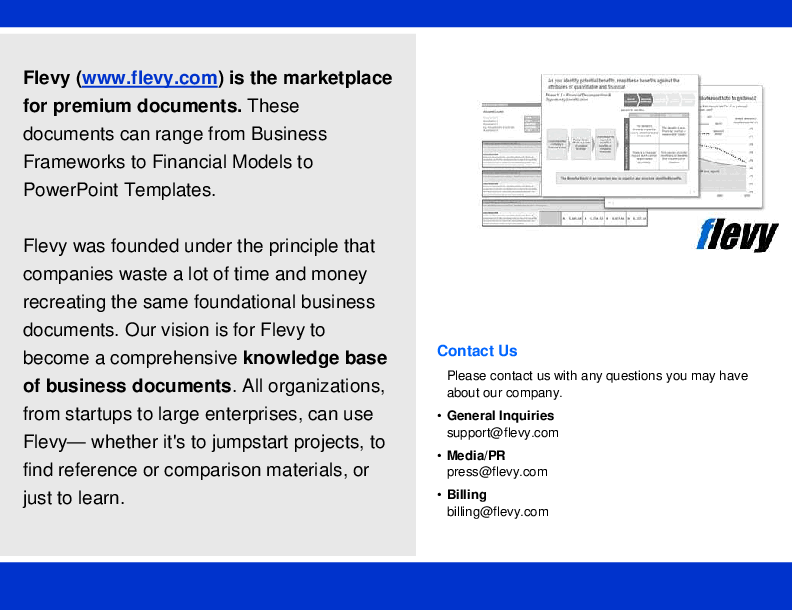Soft Side of Change Management (PowerPoint PPT Slide Deck)
PowerPoint (PPT) 20 Slides
CHANGE MANAGEMENT PPT DESCRIPTION
This document contains 6 frame Change Management frameworks that deal with the "soft" side of managing effective organizational change:
1. Dimensions of Change
2. Emotional Cycle of Change
3. Ingredients of Change
4. Level of Commitment
5. Phases of Team Building
6. Trust Formula
Understanding the sources of support and resistance to change is crucial for any organization. This document delves into the Rational, Emotional, and Political dimensions of change, providing insights into how each dimension can impact the success of change initiatives. The framework helps leaders identify and address potential obstacles, ensuring a smoother transition and greater buy-in from all stakeholders.
The Emotional Cycle of Change is another key focus, illustrating the various stages employees go through during a change process. Recognizing these emotional phases allows leaders to provide the necessary support and interventions at the right times, minimizing resistance and fostering a more resilient organizational culture. This section is particularly valuable for maintaining morale and productivity during periods of significant transformation.
The document also covers the Ingredients of Change, which are essential elements that must be in place for change to be effective. These ingredients include clear communication, strong leadership, and a well-defined vision. By understanding and implementing these components, leaders can create a robust foundation for change, ensuring that all team members are aligned and committed to the new direction.
Got a question about the product? Email us at support@flevy.com or ask the author directly by using the "Ask the Author a Question" form. If you cannot view the preview above this document description, go here to view the large preview instead.
Source: Best Practices in Change Management, Soft Skills PowerPoint Slides: Soft Side of Change Management PowerPoint (PPT) Presentation Slide Deck, LearnPPT Consulting
CHANGE MANAGEMENT PPT SLIDES
Change Management Consulting Frameworks Organizational Design Growth Strategy Maturity Model Soft Skills Business Case Development Financial Modeling Business Case Example Gap Analysis Entrepreneurship Porter's Five Forces Consulting Training Strategy Frameworks Core Competencies Current State Assessment Strategy Development Chief Strategy Officer Process Improvement Customer Experience Digital Transformation Business Transformation BCG Growth-Share Matrix M&A (Mergers & Acquisitions) Communications Strategy Change Readiness ITIL Service Management








